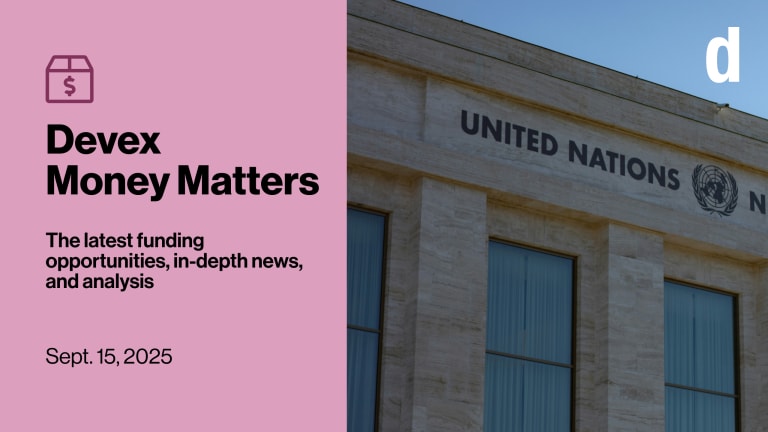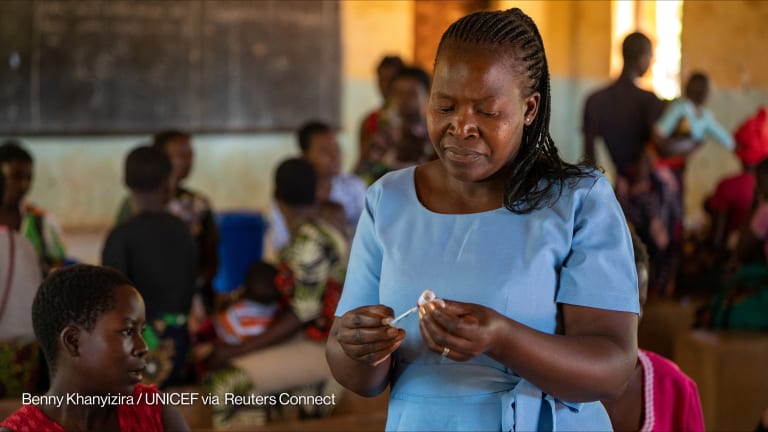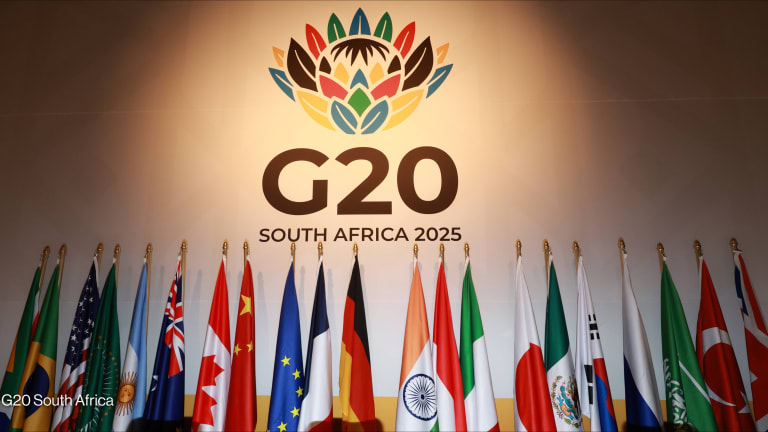
A steep budget cut for U.K. aid, the G-20 falls short on debt relief decisions, and the European Union’s pandemic aid package goes missing. This week in development:
The U.K. government plans to cut its aid budget by $3.7 billion — a larger reduction than many expected — which was announced without consultation or explanation, critics say. The decrease, described in a letter from Foreign Secretary Dominic Raab to chairs of parliamentary select committees and first reported by Devex, amounts to roughly 20% of the country’s aid budget and reflects Prime Minister Boris Johnson’s direction to reduce aid in line with projected economic fallout from the COVID-19 pandemic. "Given the likely decrease in the size of the economy this year, the Prime Minister asked me to identify the changes needed to ensure we meet, but do not exceed the 0.7% commitment," Raab wrote, referring to the U.K. law that ties aid spending to gross national income. “What kind of people are we that we are taking steps to avoid spending more than we have to on aid in the midst of a global health and economic crisis?” Owen Barder, CEO of Precision Agriculture for Development, asked on Twitter. Some of the cuts are expected to take place immediately, and Raab wrote that the “package includes underspends, delaying activity and stopping some spend.” The government will also tailor its spending for the remainder of the year as it develops a “clearer economic picture.” Sarah Champion, chair of the International Development Committee, which monitors official development assistance spending, told Devex she is worried about “the speed at which these decisions have been made, the lack of transparency about what is being cut and why, and clearly the lack of consultation about it.”
The G-20 pushed decisions about further debt suspension or forgiveness off to the fall. The group of leading rich and developing nations met last weekend and discussed additional action but could not come to agreement. A communiqué from the G-20 meeting reported that 42 countries have requested to participate in the debt service suspension initiative announced in April, which means about $5.3 billion in debt payments will be deferred. The G-20 used stronger language to call on the private sector to participate in the debt freeze. Development advocates hoped to see at least an extension of debt relief, as well as conversations that would lay the groundwork for future debt forgiveness, action on helping cash-strapped middle-income countries, and discussions on issuing International Monetary Fund special drawing rights. “Given how severe the crisis continues to be, we hoped that would see at least some minimal action,” Eric LeCompte, executive director of the Jubilee USA Network, told Devex. The G-20 got caught up in politics and could not build the consensus it needed to make a decision, he said, adding that delays in decision-making could cost lives and create difficulties for countries planning their finances.
European Union leaders agreed to a long-awaited budget deal on Tuesday, adding an $860 billion pandemic recovery fund to a seven-year, $1.24 trillion budget. The deal left some development advocates underwhelmed, as it included only a slight increase in external spending — from an estimated $113 billion in the previous cycle to $114 billion for 2021-2027. The European Commission had previously proposed an additional $18 billion development and humanitarian spending package, but this proposal disappeared over the course of difficult negotiations among states grappling with the economic shock of the pandemic. Andrew Sherriff, head of the European external affairs program at the European Centre for Development Policy Management think tank, told Devex the outcome was disappointing, given “the rhetoric of the Geopolitical commission, COVID-19's global impact, addressing climate change and much talk about an enhanced partnership with Africa,” though he noted that external spending fared better in the negotiations than some other budget lines. Others pointed to silver linings including a digital levy, environmental taxes, and a possible financial transaction tax.








